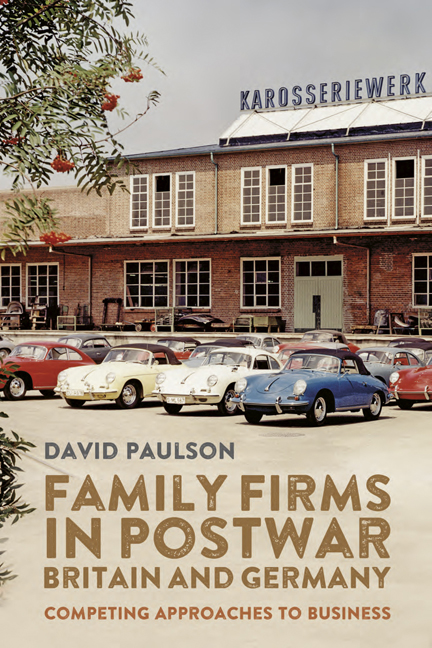1 - Introduction
Published online by Cambridge University Press: 10 January 2024
Summary
Why Study the German Mittelstand?
This book began not as an academic study but as a personal investigation into a vexing business issue: why was it so difficult for me, the managing director of a small British manufacturing business, to compete against my German counterparts? Was the problem largely to do with my capabilities as a business leader, or were the differences between companies like mine and our German competitors more fundamental and wide-reaching? Could we make rapid changes that would make us more competitive, or were we battling against strengths that had deep historical roots? I set out to find the answers to these questions through an investigation, started while I was still leading the manufacturing company, of German and British approaches to business in the decades following the end of the Second World War. By reconstructing the histories of six companies, three in each country, and the environments in which they operated, I wanted to understand how small and medium-sized, family-controlled manufacturing companies in specific industries in each country had approached the challenge of achieving sustainable business growth. In Germany, these were companies which defined themselves as part of the so-called Mittelstand, family-owned firms with strong ties to the communities in which they originated and remain anchored, all long-term in their thinking and each specialising in high-value niche products for global markets. Throughout Germany's postwar history, their experienced leaders have supposedly sustained their commitment to Made In Germany quality (a commitment so ubiquitous that it has created a national brand) by continual investment in workforce skills and product design excellence: theirs was, and continues to be, a long-term, socially responsible approach to business. In contrast, British companies’ managers, supposedly more short-lived and with less technical expertise, are assumed to have concentrated on maximising short-term profits rather than on making long-term investments to deliver superior products. Were these stereotypes true? And if they were, what was it that made the Mittelstand's approach so distinctive?
Since Germany's post-unification economic challenges of the 1990s, doubts have sometimes been expressed about the continuing relevance of the Mittelstand model.
- Type
- Chapter
- Information
- Family Firms in Postwar Britain and GermanyCompeting Approaches to Business, pp. 1 - 18Publisher: Boydell & BrewerPrint publication year: 2023

